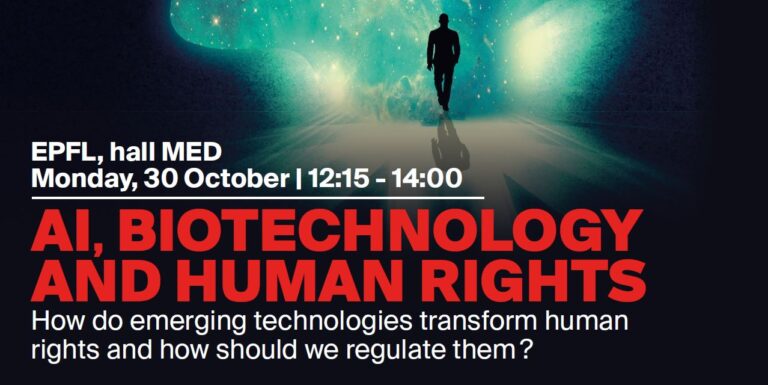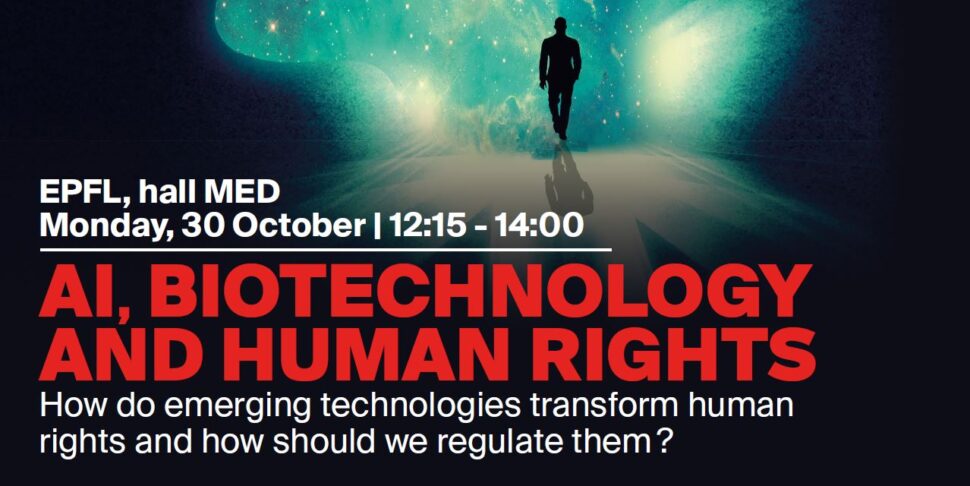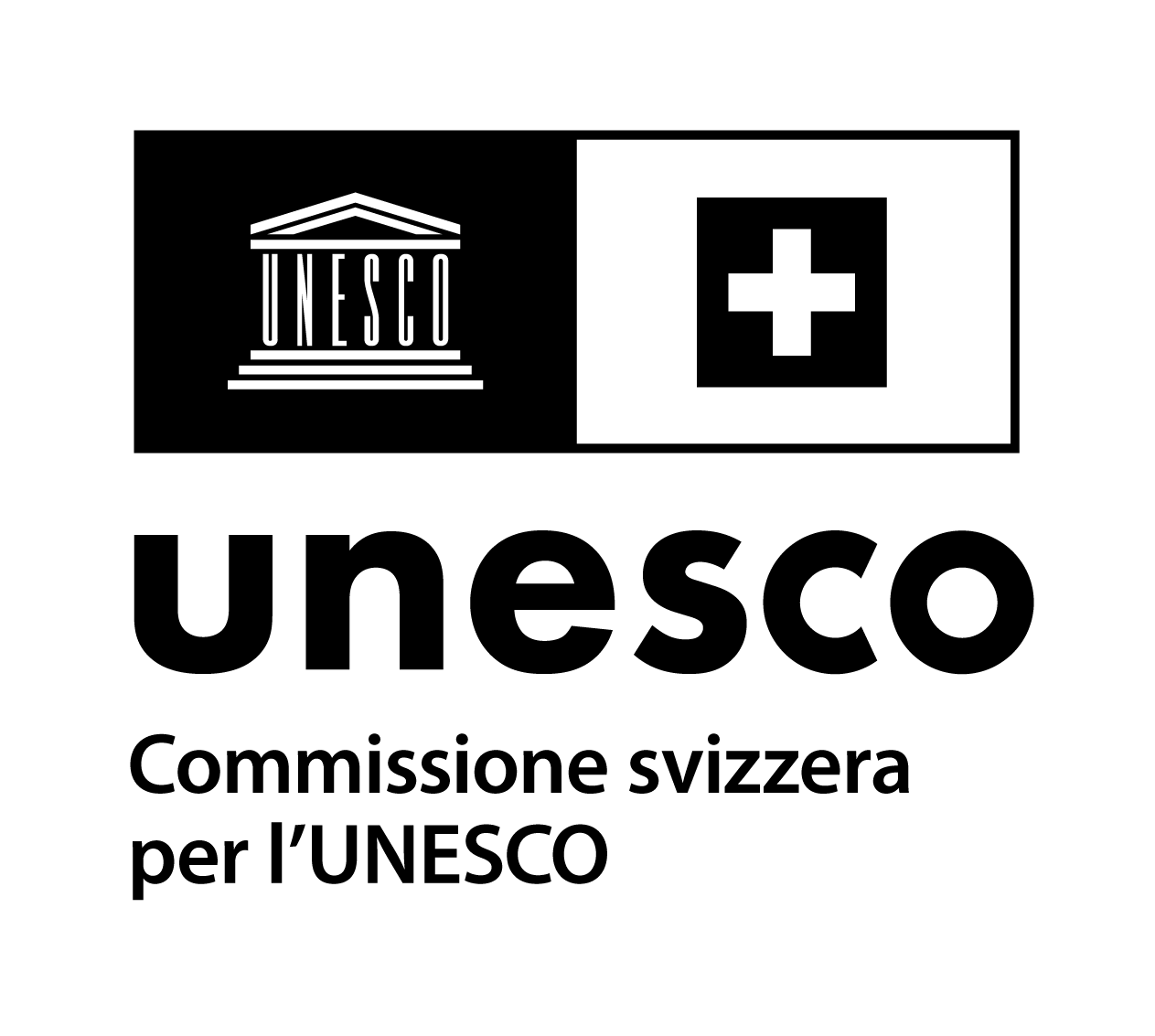AI, Biotechnology and Human Rights

How do emerging technologies transform human rights and how should we regulate them?

The College of Humanities (EPFL, Lausanne) cordially invites you to the official launch of the book: «Cambridge Handbook of Information Technology, Life Sciences and Human Rights» under the patronage of the Swiss Commission for UNESCO.
Emerging technologies are transforming humans and thereby human rights. New ethical and legal issues are raised in various scientific fields, from biotechnology and neurotechnology to information technology. What ethical and legal frameworks are needed to protect people from possible technology misuses while preserving the benefits that science and technology can bring to society? “The Cambridge Handbook of Information Technology, Life Sciences and Human Rights” addresses precisely this question and stand out as a crucial reference in the field.
Come and discuss this subject with co-editors of the Handbook:
- Prof. Marcello Ienca, professor at the Technical University of Munich and head of the Intelligent Systems Ethics Group at the CDH (EPFL)
- Prof. Robert Andorno, associate professor of Law, University of Zurich.
- Dr. Elisa Stefanini, lawyer specialised in regulatory matters in the life science sector (Portolano Cavallo)
- Laura Liguori, lawyer specialised in personal data protection, privacy and new technologies (Portolano Cavallo)
They will share their expertise with:
- Milena Costas Trascasas, Chair of the Advisory Committee to the UN Human Rights Council
- Gerard Escher, neurobiologist, senior advisor to the President of the Ecole Polytechnique Fédérale de Lausanne
With the participation of:
- Prof. Frederic Kaplan, Director of the College of Humanities
- Nicolas Mathieu, Secretary General of the Swiss Commission for UNESCO.
The event will be moderated by CDH journalist Anne Laure Gannac.
In English / Open to all
Lunch offered to registered people
Follow in streaming on the EPFL College of Humanities Youtube Channel
